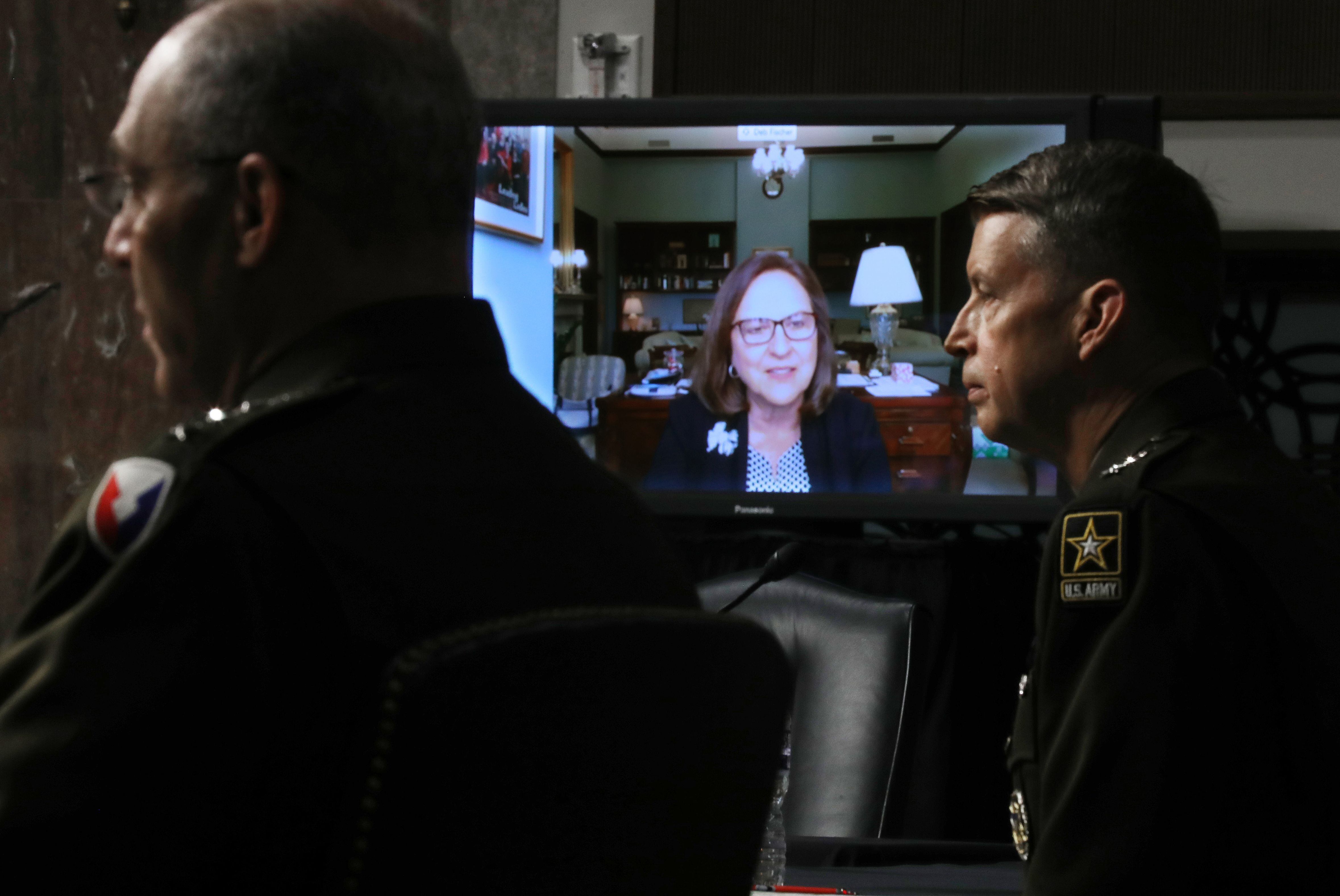WASHINGTON ― A top lawmaker on nuclear weapons is “convinced, but not fully convinced” on the Ground Based Strategic Deterrent, a hot-button program to modernize intercontinental ballistic missiles, as he heads into defense budget and policy talks in Congress.
Sen. Angus King, chair of the Senate Armed Services Committee’s Strategic Forces Subcommittee, said he wants more information about extending the life of the 400 Minuteman III missiles the GBSD would replace. Arms control advocates and some Democrats have targeted the $1 billion GBSD program, pointing to its cost.
“I would say that I’m convinced, but not fully convinced,” King, I-Maine, told reporters Saturday after leading a bipartisan congressional delegation to U.S. Strategic Command at Offutt Air Force Base in Nebraska and Minot Air Force Base in North Dakota. “The other question I’m going to be pursuing is what’s the cost of the life extension for another 40 or 50 years versus a new technology for that same period. I won’t be surprised if the costs are pretty similar, or perhaps even if the new technology is cheaper.”
King, who caucuses with Democrats, is one of a handful of moderates whose views would be crucial in the debate over GBSD. Another is Senate Defense Appropriations Subcommittee Chairman Jon Tester, D-Mont., who vowed in recent public remarks to ensure GBSD “stays on track.”
Some modernization advocates are concerned Congress may opt to cut GBSD’s budget for fiscal 2022 as a compromise path ahead of the Biden administration’s far-reaching nuclear posture review. King acknowledged next year’s funding levels are open to debate.
“I think that’s the most immediate question facing us. And it was one of the questions that I was seeking answers to on this trip,” he said.
RELATED

Northrop Grumman, to which the Air Force awarded a $13.3 billion contract in September to develop GBSD, has a lot riding on the outcome of the debate. So do the states that host the Minuteman III, deployed across Colorado, Montana, Nebraska, North Dakota and Wyoming.
King said that during the visit he entered a missile silo and learned about the onerous process of disassembling the aging Minuteman IIIs in order to maintain them and ensure they work. After that, he said, his “inclination” was the country needs GBSD “simply because at some point [with a] life extension, you reach a point of diminishing returns.”
Arms control advocates and modernization proponents differ over whether more studies or cost comparisons are needed. King said he will examine past studies and decide if gathering more data makes sense.
“Could we extend the Minuteman for another five years? Sure. Ten years? Maybe. Fifteen years? Then it gets to become a much more difficult job,” he said. “And we’re looking for protection for this country into the indefinite future until hopefully the world comes to its senses and we can get rid of all these weapons.”
King, meanwhile, is taking in multiple points of view. While he met with U.S. Strategic Command’s Adm. Charles Richard, who argues the Minuteman III is dangerously obsolete, King also held a Zoom videoconference meeting last week with former Defense Secretary Bill Perry, now an opponent of modernizing the ICBM inventory.
King was joined on the trip by Sens. Jeanne Shaheen, D-N.H.; Deb Fischer, R-Neb.; John Hoeven, R-N.D.; and Joni Ernst, R-Iowa, as well as Rep. Jeff Fortenberry, R-Neb.
Joe Gould was the senior Pentagon reporter for Defense News, covering the intersection of national security policy, politics and the defense industry. He had previously served as Congress reporter.







